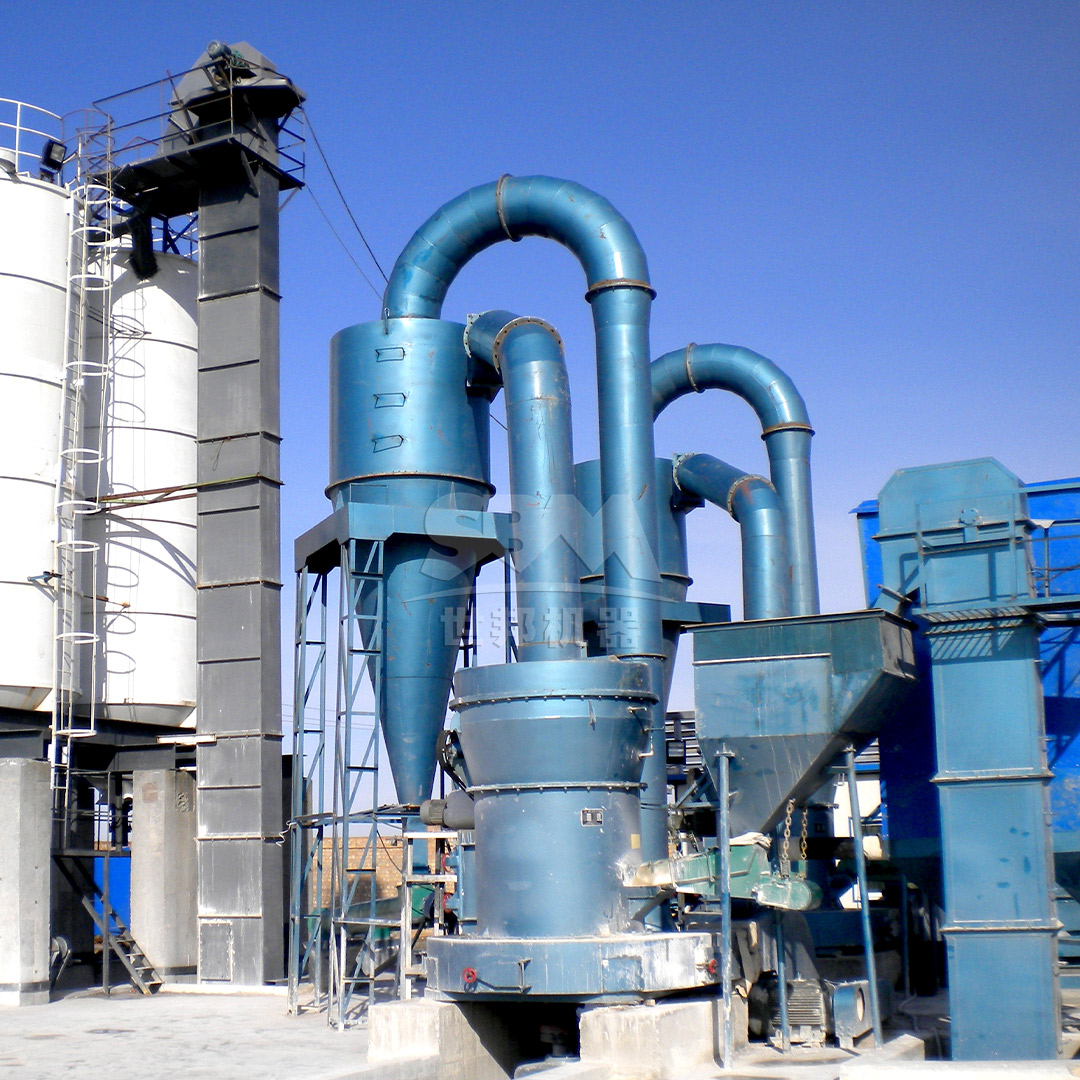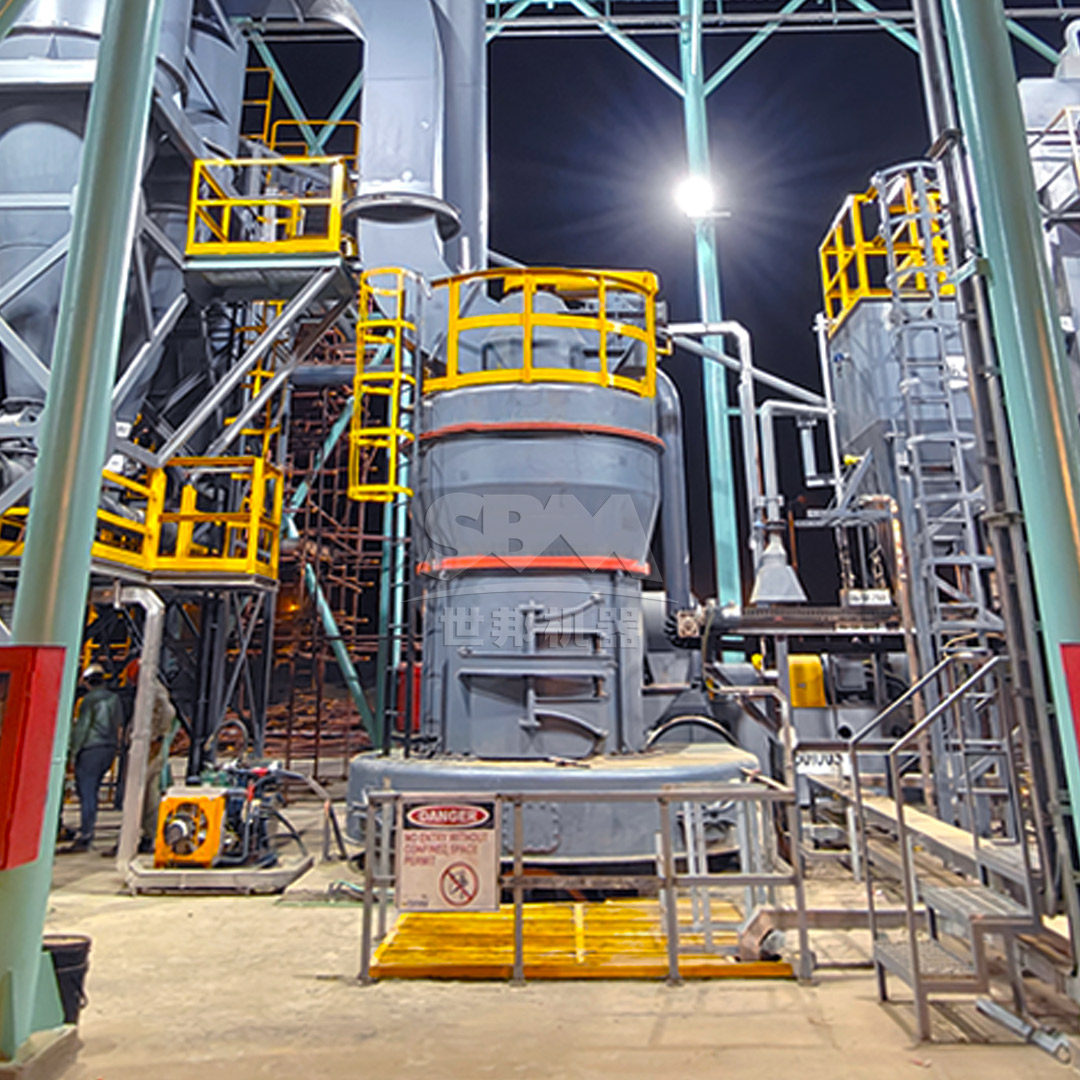The gypsum industry faces increasing demands for higher production efficiency and superior product quality in today’s competitive market. Gypsum powder, a crucial material in construction, agriculture, and various industrial applications, requires precise grinding to achieve desired particle size distributions and chemical properties. The optimization of grinding process parameters represents a significant opportunity for manufacturers to maximize yield, reduce energy consumption, and improve overall operational efficiency. This comprehensive analysis explores the key factors influencing gypsum grinding efficiency and presents advanced technological solutions to address these challenges.
The target particle size distribution for gypsum powder varies significantly depending on the intended application. Construction-grade gypsum typically requires a fineness between 100-200 mesh, while specialized applications may demand ultra-fine powders reaching 2500 mesh. The grinding system must maintain consistent particle size distribution while maximizing throughput. Modern grinding equipment incorporates advanced classification systems that enable precise control over the final product’s granulometry, ensuring optimal performance in downstream applications.
Gypsum feedstock characteristics, particularly moisture content, play a crucial role in grinding efficiency. Excessive moisture can lead to material agglomeration, reduced throughput, and increased energy consumption. Optimal moisture levels typically range between 1-5%, depending on the grinding technology employed. The preparation of raw material through proper drying and pre-processing significantly impacts the overall grinding performance and final product quality.
| Parameter | Optimal Range | Impact on Yield |
|---|---|---|
| Feed Size | ≤20mm | Directly affects grinding efficiency and energy consumption |
| Moisture Content | 1-5% | Higher moisture reduces throughput and increases energy use |
| Grinding Temperature | 80-120°C | Affects gypsum dehydration and product quality |
| Air Flow Rate | System dependent | Critical for material transport and classification efficiency |
Grinding operations typically account for 60-70% of the total energy consumption in gypsum processing plants. Optimizing energy usage not only reduces operational costs but also minimizes environmental impact. Advanced grinding systems incorporate energy recovery mechanisms and intelligent control systems that adjust operational parameters in real-time based on feed material characteristics and desired product specifications.

For applications requiring exceptionally fine gypsum powders, specialized grinding equipment delivers superior performance. The SCM Ultrafine Mill represents a technological breakthrough in gypsum processing, capable of producing powders with fineness ranging from 325 to 2500 mesh (D97≤5μm). This system achieves remarkable energy efficiency, consuming 30% less power compared to conventional grinding mills while delivering twice the output of jet mills. The integrated intelligent control system automatically adjusts operational parameters to maintain consistent product quality, even with variations in feed material characteristics.
The SCM series incorporates a vertical turbine classifier that ensures precise particle size distribution without coarse powder contamination. This technology is particularly valuable for producing high-value gypsum products for specialized applications in pharmaceuticals, food processing, and advanced materials. With throughput capacities ranging from 0.5 to 25 tons per hour across different models, the SCM Ultrafine Mill offers scalability to match production requirements while maintaining optimal efficiency.
For large-scale gypsum processing operations, the MTW Series Trapezium Mill provides an optimal balance between capacity, energy efficiency, and product quality. With processing capabilities reaching 45 tons per hour, this advanced grinding system incorporates innovative features such as curved air duct technology that minimizes energy loss and improves material transport efficiency. The combined blade design significantly reduces maintenance requirements and extends the service life of wear components.
The MTW series utilizes an integral transmission system with bevel gears that achieves 98% transmission efficiency, substantially reducing energy consumption compared to conventional grinding systems. This technology is particularly well-suited for processing natural gypsum and flue gas desulfurization gypsum, delivering consistent product quality across varying feedstock characteristics. The modular design facilitates quick replacement of wear parts, minimizing downtime and maintenance costs.

Modern gypsum grinding plants benefit significantly from integrated automation systems that continuously monitor and adjust operational parameters. These systems utilize real-time data from multiple sensors measuring feed rate, motor load, temperature, pressure, and product fineness. By implementing advanced control algorithms, operators can maintain optimal grinding conditions, respond quickly to process disturbances, and maximize overall equipment effectiveness.
The abrasive nature of gypsum necessitates careful management of wear components in grinding systems. Advanced materials and innovative design approaches have substantially extended the service life of critical components such as grinding rolls, rings, and liners. The implementation of predictive maintenance strategies, based on continuous monitoring of vibration, temperature, and operational parameters, enables planned maintenance interventions that minimize unplanned downtime and optimize component replacement schedules.
| Optimization Strategy | Implementation Approach | Expected Benefit |
|---|---|---|
| Parameter Optimization | Statistical process control and DOE | 5-15% yield improvement |
| Energy Management | Variable frequency drives and heat recovery | 20-30% energy reduction |
| Maintenance Optimization | Predictive maintenance technologies | 15-25% reduction in downtime |
| Quality Control | Online particle size analysis | Consistent product quality |
A major gypsum processor recently upgraded their production line by implementing the SCM8021 Ultrafine Mill to replace their conventional ball mill system. The results demonstrated substantial improvements across multiple performance metrics. The new system achieved a 32% reduction in specific energy consumption while increasing throughput by 28%. Product quality showed remarkable consistency, with 98.5% of production meeting the target particle size distribution specification, compared to 85% with the previous system.
The installation incorporated an advanced classification system that enabled precise control over product fineness, allowing the processor to serve multiple market segments with different quality requirements from a single production line. The environmental performance also improved significantly, with dust emissions reduced to below 10mg/m³ and noise levels maintained below 75dB, exceeding regulatory requirements.

The evolution of gypsum grinding technology continues to focus on enhancing efficiency, reducing environmental impact, and increasing operational flexibility. Emerging trends include the development of hybrid grinding systems that combine multiple comminution principles to optimize energy utilization, advanced sensor technologies for real-time quality monitoring, and artificial intelligence applications for predictive optimization of process parameters. The integration of Industry 4.0 principles enables fully autonomous operation with self-optimizing capabilities that continuously adapt to changing conditions and requirements.
Optimizing grinding process parameters represents a significant opportunity for gypsum processors to enhance operational efficiency, reduce costs, and improve product quality. The implementation of advanced grinding technologies, such as the SCM Ultrafine Mill and MTW Series Trapezium Mill, enables manufacturers to achieve substantial improvements in yield, energy efficiency, and product consistency. By adopting a comprehensive approach that integrates advanced equipment, process control systems, and maintenance strategies, gypsum processors can maximize their competitive advantage in an increasingly demanding market.
The continuous evolution of grinding technology promises further advancements in efficiency and capability, ensuring that gypsum processors can meet future challenges while maintaining sustainable and profitable operations. As the industry moves toward more automated and intelligent production systems, the optimization of grinding parameters will remain a critical factor in achieving operational excellence.